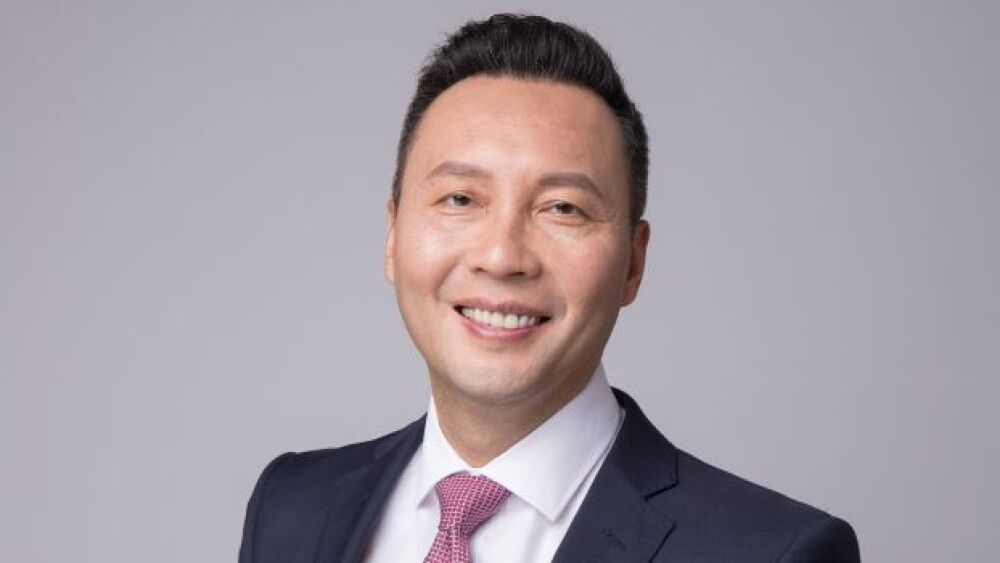Wang, who has played a key role in the development of more than 25 innovative medicines at Eli Lilly and GlaxoSmithKline, made him the ideal fit for the company’s next chapter.
LianBio Chief Executive Officer, Yizhe Wang, Ph.D/ Photo Courtesy of LianBio
With a mission to bring the most innovative medicines to the Chinese marketplace, LianBio has been racking up the headlines of late, and May has been no exception. On May 10, the startup licensing-based biotech announced that bicontinental pharma industry veteran Yizhe Wang, Ph.D. had signed on as its chief executive officer.
Founded in October 2019 by Perceptive Advisors, LianBio debuted already holding strategic partnerships with companies including MyoKardia Inc., BridgeBio Pharma, BridgeBio Pharma affiliate companies Navire Pharma and QED Therapeutics.
In November, the company inked an open-ended development deal with Pfizer, and most recently partnered with Landos Biopharma to develop and commercialize colitis and Crohn’s drugs in Greater China and other Asian markets.
The alliance with Pfizer will allow LianBio to leverage the multinational’s considerable infrastructure and experience in the Asian marketplace.
“It’s completely up to [LianBio] to introduce the assets that we will desire to co-commercialize to Pfizer, but at the same time, this long-lasting relationship provides us access to the entirety of the Pfizer infrastructure that they’ve built over a decade-plus in China. Having their perspective and input into our pipeline is a big advantage for us,” said Perceptive managing director and LianBio executive chairman, Konstantin Poukalov.
LianBio, which was founded with the intent to develop and accelerate the availability of paradigm-shifting medicines to patients in China and major Asian markets, takes a distinctive approach to the business.
“We took each element of the business system of a licensing-based company and we tried to be very strategic and thoughtful about how to move it to the next gen,” said LianBio president and chief business officer, Debra Yu, M.D.
This model includes a sourcing strategy where the company looks for programs that are particularly scientifically rooted and where there is significant unmet need, as well as an agile commercialization model.
Wang, who has played a key role in the development of more than 25 innovative medicines at Eli Lilly and GlaxoSmithKline, made him the ideal fit for the company’s next chapter.
“I am honored to join LianBio to scale the company’s next-generation approach to sourcing, developing and commercializing innovative drugs in the region. As LianBio continues to advance a portfolio of world-class programs across therapeutic areas, I look forward to partnering with the founding team to address the medical needs of patients in China and throughout Asia,” said Dr. Wang who officially embarked on this new journey on May 17.
Most recently, Wang served as the Global Platform Lead for anti-COVID Therapy at Lilly where he spearheaded a new operating model that integrated discovery, development, and launch and led to the emergency use authorization (EUA) of bamlanivimab for mild-to-moderate COVID-19.
Prior to this, Wang was a Global Brand Development leader at Lilly and helmed the BioMedicines and Oncology Businesses at Lilly China where he launched several new products, including Tyvyt, Elunate, Taltz and Olumiant, leading to double-digit sales growth.
Wang’s strategic leadership will go a long way to helping LianBio develop and commercialize a cadre of promising partnered assets, including MyoKardia’s Mavacamten and Landos’ colitis and Crohn’s drugs, omilancor and NX-13.
“Yizhe’s ability to really operate across the entirety of the pipeline and his experience in multinationals which also often deal with fairly broad pipelines of assets and stages of development really made him kind of the perfect candidate for us,” Poukalov said.
Omilancor is in late-stage development for the aforementioned conditions, NX-13 in Phase I, while Poukalov expects Mavacamten to be one of LianBio’s initial launches in China.
LianBio’s rapid ascent out of the gate and host of interested partners is indicative of the biopharma evolution that is taking place in China.
“China has been opening to life sciences in so many different ways, from this whole transmogrification of generic drugs to innovative drugs as an industry structure. From all the money that is being put into life sciences in China, started by the government, but also by venture funds, sector-focused venture funds that are now in China together now with capital markets with the opening of Hong Kong,” Yu said.
And LianBio’s focus goes far beyond the Chinese market with Yu adding, “We’re looking for places where we can make an impact in China and our territories, but also places where these are just really high unmet needs globally, and where our presence in the regional area can actually also help build value globally.”
It takes a unique perspective to execute on this type of mission, and Yang, who has built and overseen high-growth business units in both China and the United States, appears to be the man for the job.
“In order to run such a diverse sort of approach with such a pipeline, you really need to have somebody with deep perspective and ability to operate across multiple therapeutic areas, multiple stages of development, and a fundamental understanding of how drugs are commercialized in China,” Poukalov said.






